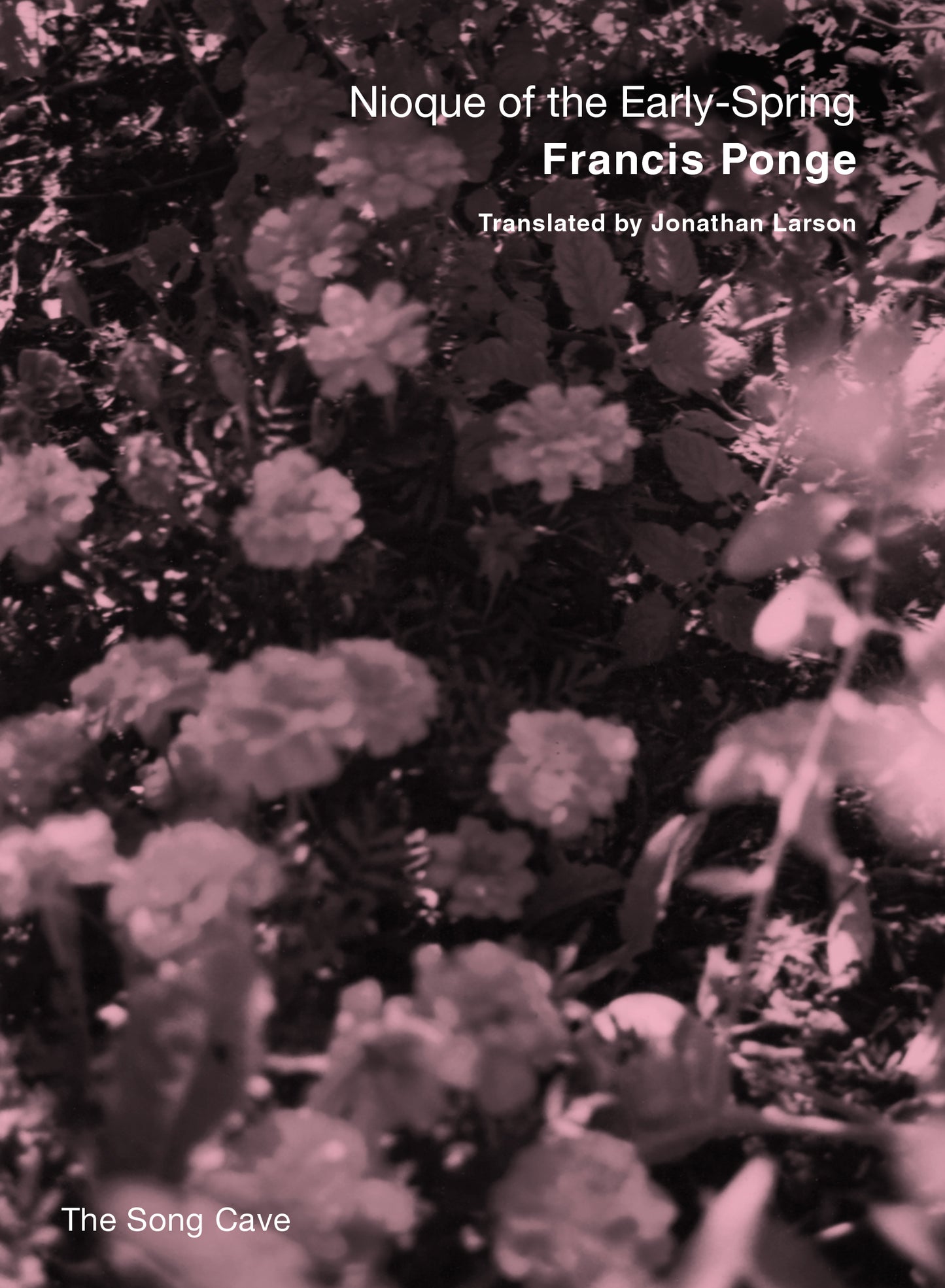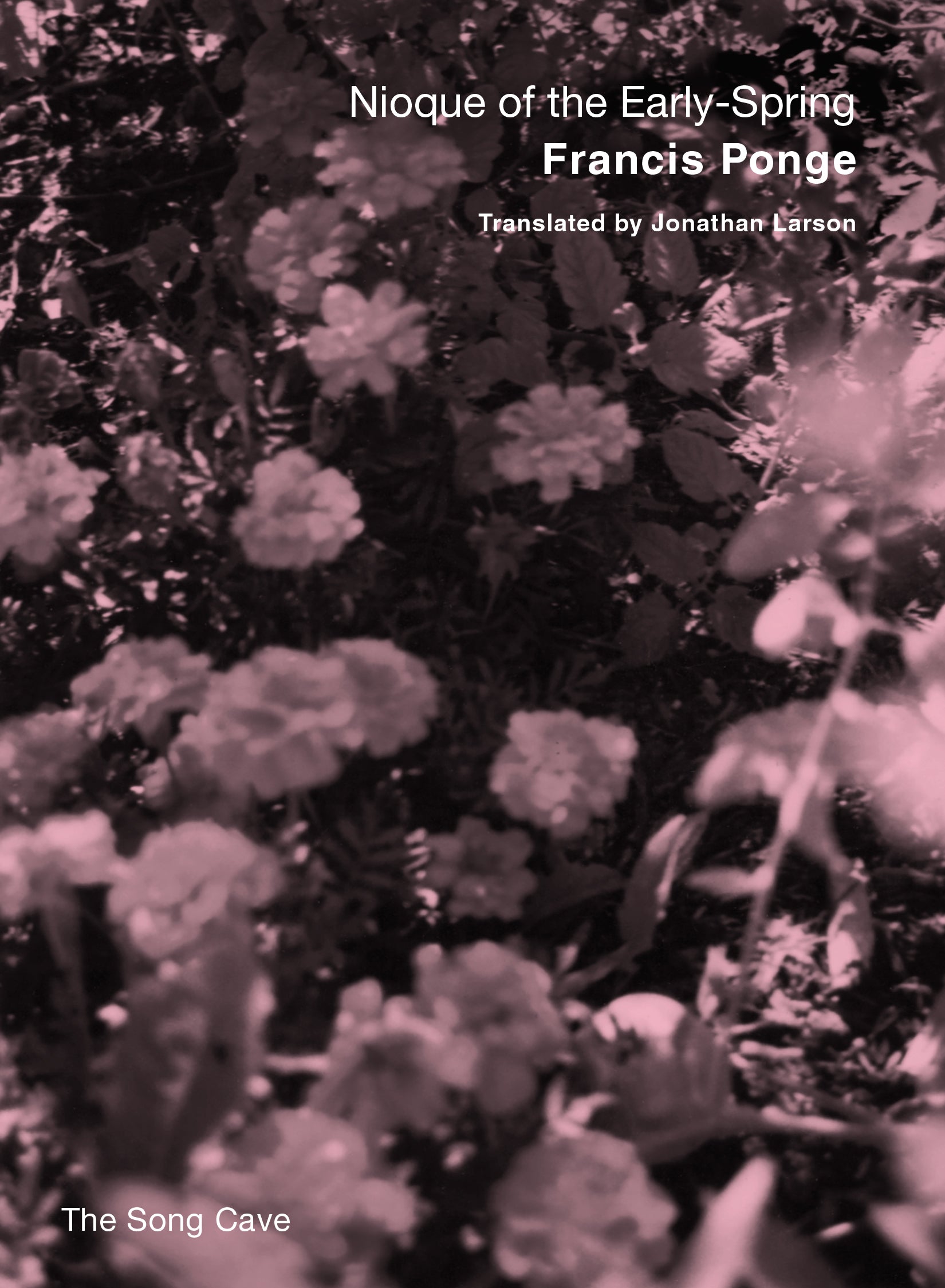Nioque of the Early-Spring by Francis Ponge
Nioque of the Early-Spring by Francis Ponge
Couldn't load pickup availability
For international orders, please visit our distributor, here.
On the 50th anniversary of its publication, The Song Cave is honored to publish the first English translation of Francis Ponge's Nioque of the Early-Spring. Ostensibly a book written to honor the season itself and the cycle of time, upon its release in France in May 1968, these notes took on a greater metaphorical meaning within this context, addressing the need for new beginnings and revolution. Translated by Jonathan Larson.
“April is not always the cruelest month. In these stray notations dated early April 1950, Ponge provides a latter-day version of Stravinsky’s Sacre du printemps or of William Carlos Williams’ Spring and All—a vernal enactment of all the resurrectional energies of a springtime-to-come, as witnessed firsthand at the farmhouse of “La Fleurie” in southern France. When subsequently published in Tel Quel in May 1968, eighteen years later, Ponge’s rural, pastoral text now acquired a specific urban history and Utopianism, its Lucretian “Nioque,” or gnosis, now speaking to the gnomic revolutionary slogans of the Left Bank barricades: “Be realistic, demand the impossible,” “Beneath the cobblestones, the beach.” Jonathan Larson’s careful engagement with Ponge manages to seize what is most prosaic about his poetry—its fierce communism of the ordinary, its insistence that taking the part of things means taking words at their most etymological everydayness."
—Richard Sieburth
“This startlingly fresh and necessary document of the 1950s by Francis Ponge comes to us via the all too rare feat of true poetic reenactment. Understanding that each poet creates language anew, Jonathan Larson has found a poetics suitable for the occasion of Ponge’s own poetic logic. In this rendering, Larson’s absolute care and attention to syllabic weight and measure, to the syntax and length of each line as it unwinds, allows us—as readers—to come into the drama of a text newly made, in other words, to discover a new poem in its very making. Yet, none of this comes at the cost of accuracy or through the subjugation of the original at the hands of one wielding the imperial language. This is no mean feat in this day and age and, by way of Larson’s exquisite ear, we are again given the poignancy and urgency of Ponge’s own moment.”
—Ammiel Alcalay
Francis Ponge (1899-1988) was born in Montpellier, France, and is most famously the author of The Voice of Things (1942), Soap (1967), The Making of the Prairie (1971).
During the Second World War, Ponge joined the French Resistance. He also worked for the National Committee of Journalists, and was literary and artistic director of the communist weekly newspaper L'Action. He left the Communist Party in 1947. From 1952 to 1967 he held a professorship at the Alliance Française in Paris, and was a visiting professor at Barnard College and Columbia University in the United States.
Awards made to Ponge include the Neustadt International Prize for Literature, the Académie française's French National Poetry Prize, and the Grand prix of the Société des gens de lettres, and was a Commandeur of the Légion d'honneur.
For the last 20 years of his life Ponge was reclusive, living at his country house in Le Bar-sur-Loup, where he died at the age of 89.
Jonathan Larson, poet and translator, was born in 1984. Nioque of the Early-Spring is his first full-length translation.

